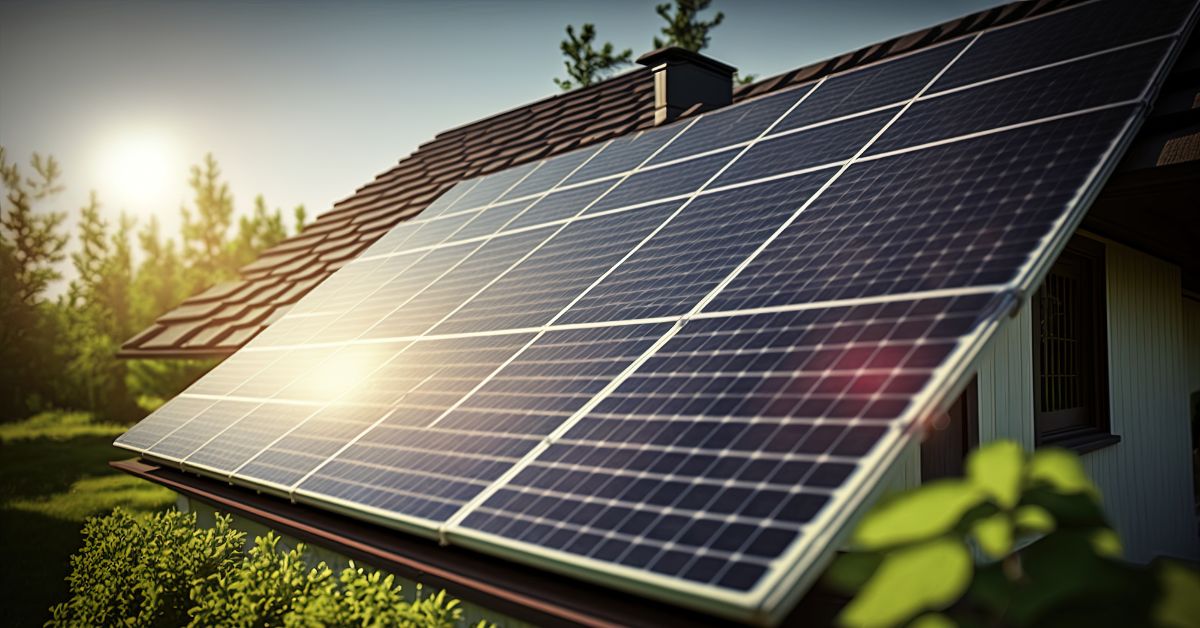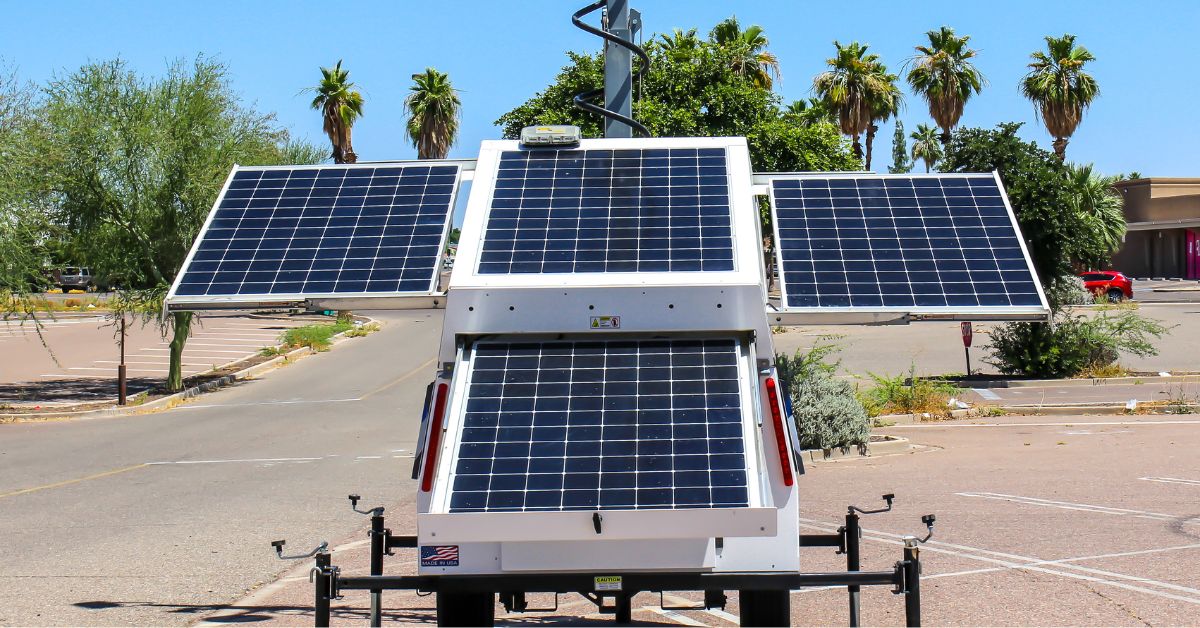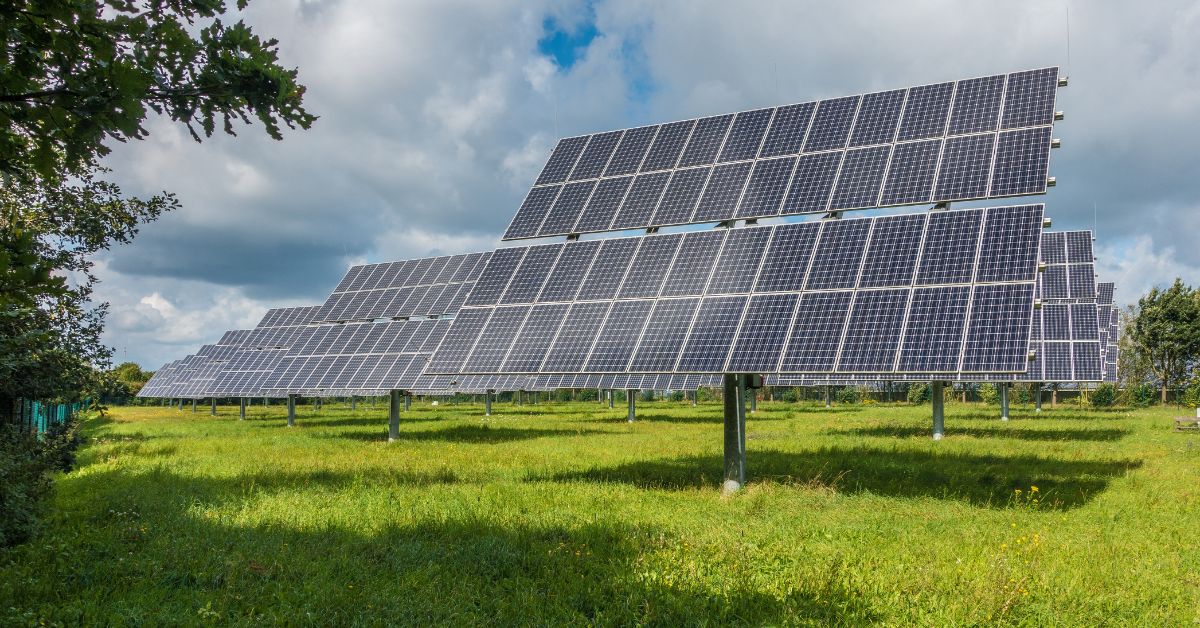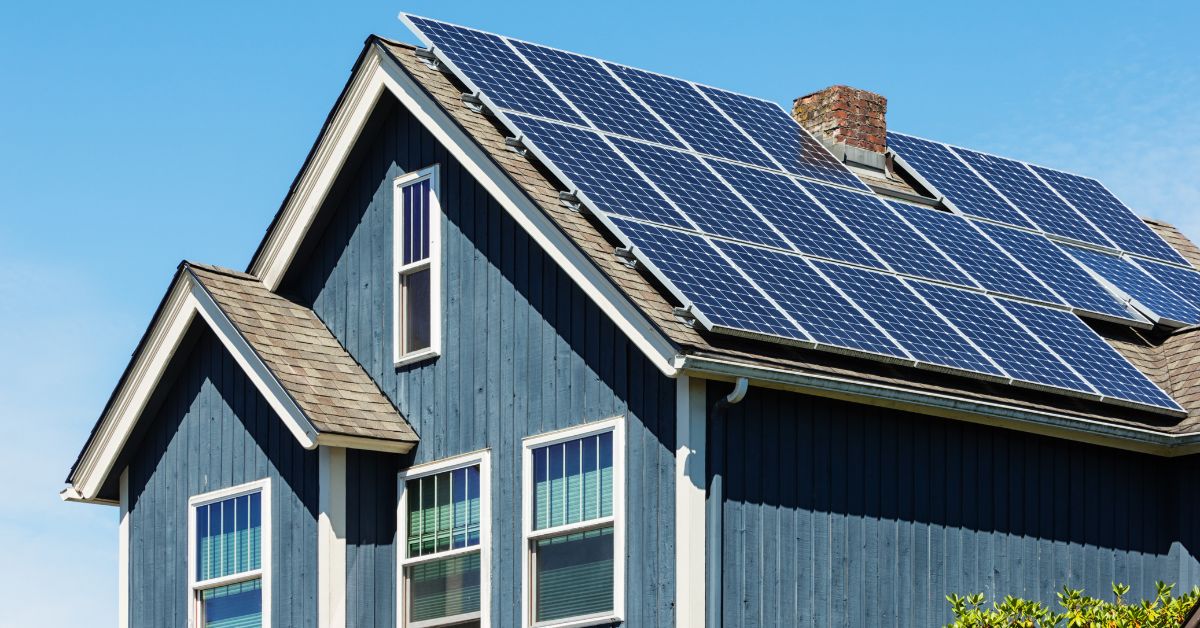Solar Panels For Homes in India
Solar Panels For Homes in India offer an eco-friendly and cost-effective solution to rising energy demands. With abundant sunlight throughout the year, solar energy provides a sustainable alternative to conventional electricity, reducing dependency on fossil fuels and lowering monthly utility bills. Modern residential solar systems are designed for easy rooftop installation, optimized to capture maximum sunlight even in densely populated areas. Government incentives, such as subsidies and net metering policies, make solar energy more accessible and affordable for homeowners. Investing in solar panels not only promotes clean energy but also increases property value while contributing to India’s renewable energy goals.
Solar Panels for Homes in India: A Comprehensive Guide
In recent years, India has emerged as a global leader in renewable energy, driven by increasing awareness of the environmental impact of traditional energy sources, rising electricity costs, and government incentives aimed at promoting sustainable energy solutions. Among the various forms of renewable energy, solar power has garnered the most attention due to India’s geographical advantage. With an average of 300 sunny days per year, India is one of the best-suited countries for solar power generation.
This blog post provides a detailed guide on solar panels for homes in India, covering everything from the basics of how solar panels work to installation, costs, government schemes, and the environmental benefits of adopting solar energy.
1. What Are Solar Panels?
They are made of photovoltaic (PV) cells, which are semiconductor materials that generate an electric current when exposed to sunlight.
A typical residential solar power system comprises several key components:
- Solar panels: Convert sunlight into DC electricity.
- Inverter: Converts DC electricity into AC electricity, which is used by household appliances.
- Battery (optional): Stores excess energy generated during the day for use at night or during power outages.
- Net meter: Measures the energy sent to and received from the grid in grid-connected systems.
2. Why Choose Solar Panels for Your Home in India?
There are several compelling reasons why homeowners in India should consider investing in solar panels:

a) Energy Independence
Solar energy allows homeowners to generate their electricity, reducing dependence on the traditional power grid. With frequent power cuts in certain parts of India, solar energy can provide a reliable source of electricity.
b) Cost Savings
Electricity prices in India have been rising steadily, and this trend is expected to continue. Solar panels can reduce electricity bills significantly, especially in states where electricity costs are high. Once installed, solar panels can provide free electricity for 25 years or more, allowing homeowners to recoup their investment over time.
c) Environmental Benefits
Solar energy is a clean and renewable energy source. Unlike coal, oil, and gas, which release harmful emissions into the atmosphere, solar power generation produces no greenhouse gases. This makes it an excellent choice for homeowners looking to reduce their carbon footprint.
d) Government Incentives
The Indian government has implemented several policies and incentives to promote solar power adoption among homeowners. These include subsidies, tax benefits, and net metering policies, all of which reduce the initial investment and make solar energy more affordable.
e) Increase in Property Value
Homes equipped with solar panels are considered more valuable in the real estate market. This is because solar energy systems lower operating costs and increase the energy efficiency of a property.
3. How Do Solar Panels Work?
Understanding the workings of solar panels helps homeowners make informed decisions about their energy systems.
- Photovoltaic Effect: Solar panels contain PV cells made from semiconductor materials like silicon. When sunlight hits these cells, the energy from the light particles (photons) excites the electrons in the semiconductor material, creating an electric field.
- Direct Current (DC): The excited electrons move through the material, generating a flow of electricity in the form of direct current (DC).
- Inverter Conversion: Since most household appliances run on alternating current (AC), the DC electricity generated by the solar panels is sent to an inverter, which converts it into AC electricity.
- Energy Usage: The AC electricity is then used to power your home. If the solar system produces more electricity than is needed, the excess energy can either be stored in batteries for later use or sent back to the grid, depending on the system’s setup.
4. Types of Solar Panels Available in India
There are three main types of solar panels available in India, each with its advantages and disadvantages:
a) Monocrystalline Solar Panels
Monocrystalline panels are made from a single crystal structure, which makes them the most efficient and longest-lasting type of solar panel. They offer efficiency rates of 15-20% and are ideal for homes with limited roof space. However, they are also the most expensive.
b) Polycrystalline Solar Panels
Polycrystalline panels are made from multiple crystal structures and are slightly less efficient than monocrystalline panels, with an efficiency rate of 13-16%. However, they are more affordable and are a good option for homeowners looking for a balance between cost and efficiency.
c) Thin-Film Solar Panels
Thin-film panels are made by depositing photovoltaic material onto a surface like glass or plastic. They are lightweight, flexible, and the least expensive, but they are also the least efficient, with an efficiency rate of 10-12%. These panels are suitable for homes with large roof areas where space is not an issue.
5. Installation Process for Solar Panels
The installation process for solar panels involves several steps:
a) Site Assessment
A professional installer will assess your home to determine its solar potential. They will evaluate factors like roof orientation, shading, and available space to design a system that maximizes energy production.
b) System Design
Based on the site assessment, the installer will design a solar power system tailored to your home’s needs. This includes determining the number of panels required, the placement of the inverter, and whether a battery storage system is necessary.
c) Permitting and Approvals
Before installation can begin, homeowners need to obtain the necessary permits from local authorities. In some cases, you may also need approval from the local utility company if you plan to connect your system to the grid.
d) Installation
Once the permits are in place, the installer will mount the solar panels on your roof, install the inverter and battery (if applicable), and connect the system to your home’s electrical wiring.
e) Inspection and Connection
After installation, the system will be inspected to ensure it meets all safety and performance standards. Once approved, it can be connected to the grid, allowing you to start generating solar power.
6. Cost of Solar Panels in India
The cost of installing solar panels in India depends on several factors, including the type of panels used, the size of the system, and the location of your home. On average, the cost of a solar power system for a typical home ranges from INR 50,000 to INR 5,00,000.
- Solar Panels: The cost of solar panels varies depending on the type and brand. Monocrystalline panels are more expensive, ranging from INR 30 to 40 per watt, while polycrystalline panels are cheaper at INR 20 to 30 per watt.
- Inverter: A good-quality inverter costs between INR 10,000 to INR 1,00,000, depending on the capacity.
- Battery: If you opt for a battery storage system, it can add anywhere from INR 20,000 to INR 2,00,000 to the total cost.
- Installation: Installation charges typically range from INR 10,000 to INR 50,000, depending on the complexity of the system.
a) Return on Investment (ROI)
While the initial cost of a solar power system may seem high, it is important to consider the long-term savings on electricity bills. Most homeowners in India can expect to recover their investment in 4-7 years, depending on the size of the system and local electricity rates. After this payback period, the electricity generated is essentially free.
7. Government Incentives for Solar Panels in India
The Indian government has launched several initiatives to encourage the adoption of solar energy, making it more affordable for homeowners. Some of the key incentives include:

a) Subsidies
The Ministry of New and Renewable Energy (MNRE) offers subsidies for residential solar panel installations. The subsidy amount varies depending on the size of the system and the state in which it is installed. As of 2021, the government provides a subsidy of up to 40% for systems up to 3 kW and 20% for systems between 3 kW and 10 kW.
b) Net Metering
Net metering allows homeowners to export excess electricity generated by their solar panels back to the grid. In return, the utility company provides credits that can be used to offset future electricity bills. This is a great way to maximize the benefits of a solar power system, especially in areas with high sunlight exposure.
c) Tax Benefits
Under Section 80-IA of the Income Tax Act, homeowners who invest in solar power systems can claim tax deductions on their investments. This reduces the overall cost of the system and makes it more affordable for middle-income households.
d) State-Specific Schemes
Many Indian states have their solar energy policies and schemes, providing additional incentives to homeowners. For example, the Delhi Solar Policy offers a capital subsidy, and Gujarat has a “Surya Gujarat” scheme that provides easy financing options for solar installations.
8. Challenges of Adopting Solar Energy in India
Despite the numerous benefits of solar energy, there are still some challenges associated with its adoption:
a) High Initial Cost
The upfront cost of installing solar panels is still relatively high for many homeowners, even with government subsidies. While costs have come down significantly over the years, financing remains a barrier for some households.
b) Space Requirements
For homeowners with limited roof space, it can be challenging to install enough panels to generate sufficient electricity. While more efficient monocrystalline panels can help, they are more expensive.
c) Intermittency
Solar power generation depends on sunlight, meaning it is not available at night or during cloudy days. While battery storage systems can address this issue, they add to the overall cost of the system.
d) Maintenance
Solar panels require minimal maintenance, but they do need to be cleaned regularly to remove dust and debris that can reduce their efficiency. In areas with high levels of pollution, this can be a significant task.
9. Environmental Impact of Solar Panels
Solar panels have a positive impact on the environment by reducing the reliance on fossil fuels for electricity generation. However, it is important to consider the environmental impact of their production and disposal.
a) Energy Payback Time
The energy payback time refers to the time it takes for a solar panel to generate the same amount of energy that was used in its production. For most panels, this is between 1-3 years, after which the energy generated is essentially carbon-free.
b) Recycling
Solar panels have a lifespan of 25-30 years, after which they need to be disposed of or recycled. The recycling process for solar panels is still in its infancy, but advancements are being made to ensure that materials like silicon, glass, and metals can be recovered and reused.
Top 10 Solar Panels for Residences in India
As the world moves towards renewable energy solutions, solar energy has emerged as one of the most efficient and sustainable options for both individuals and businesses. India, being a tropical country with abundant sunlight, is an ideal location for the use of solar energy. The Indian government has been promoting solar energy through various schemes, making it more accessible and affordable for homeowners.
Solar panels have become a popular solution for reducing electricity bills and contributing to a cleaner environment. With several manufacturers offering different types of solar panels, choosing the right one for your home can be challenging. In this blog, we will guide you through the Top 10 Solar Panels for Residences in India to help you make an informed decision.

1. Tata Power Solar Panels
Tata Power Solar is one of the leading solar panel manufacturers in India. The company has been at the forefront of the solar revolution in the country. Tata Power Solar offers a range of solar solutions for both residential and commercial purposes. Their solar panels are known for their efficiency, durability, and excellent performance in Indian weather conditions.
Features:
- Efficiency: Tata Power Solar panels come with an efficiency rate of around 19-21%, making them one of the most efficient options available in the market.
- Durability: The panels are built to withstand extreme weather conditions such as high winds, hail, and heavy rainfall, ensuring a long lifespan.
- Warranty: Tata Power Solar offers a 25-year performance warranty on its panels, ensuring long-term reliability.
Why Choose Tata Power Solar?
Tata Power Solar is a trusted name in the Indian solar industry. With their high-quality solar panels and excellent after-sales service, they are a top choice for residential solar installations.
2. Loom Solar Panels
Loom Solar is a relatively new entrant to the Indian solar market but has quickly gained popularity due to its affordable and efficient solar panels. The company is known for offering mono-perc panels, which are more efficient than traditional polycrystalline panels.
Features:
- Efficiency: Loom Solar panels have an efficiency rate of 19-22%, thanks to their mono-perc technology.
- Durability: These panels are designed to last for more than 25 years and come with a 25-year warranty.
- Cost-Effective: Loom Solar offers affordable solar panel options, making them accessible to a wider audience.
Why Choose Loom Solar?
If you are looking for affordable yet high-quality solar panels for your home, Loom Solar is a great choice. Their innovative technology and competitive pricing make them stand out in the Indian solar market.
3. Waaree Solar Panels
Waaree Energies is one of the largest manufacturers of solar panels in India. With over 30 years of experience, the company has established itself as a reliable provider of solar solutions. Waaree solar panels are widely used in residential, commercial, and industrial installations.
Features:
- Efficiency: Waaree solar panels have an efficiency rate of 18-20%, making them suitable for residential use.
- Durability: The panels are tested for extreme weather conditions and come with a robust build quality.
- Warranty: Waaree offers a 25-year linear power output warranty, ensuring long-term performance.
Why Choose Waaree Solar?
Waaree Energies offers a wide range of solar panels to suit different needs and budgets. Their high-quality products, combined with excellent customer service, make them a top contender for residential solar installations in India.
4. Adani Solar Panels
Adani Solar is a subsidiary of the Adani Group, one of India’s largest conglomerates. The company has made significant strides in the solar industry, offering high-performance solar panels for residential use.
Features:
- Efficiency: Adani Solar panels offer an efficiency rate of 18-20%.
- Durability: The panels are built to withstand harsh Indian weather conditions, ensuring a long lifespan.
- Warranty: Adani Solar provides a 25-year warranty on their solar panels.
Why Choose Adani Solar?
Adani Solar is a trusted name in the Indian renewable energy sector. Their solar panels are known for their durability and high performance, making them a reliable choice for homeowners looking to switch to solar energy.
5. Microtek Solar Panels
Microtek is a well-known brand in the Indian power solutions industry. The company has expanded its product range to include solar panels, offering high-quality and affordable options for residential use.
Features:
- Efficiency: Microtek solar panels have an efficiency rate of 16-18%, making them suitable for small to medium-sized residential installations.
- Durability: These panels are designed to withstand Indian weather conditions and come with a 25-year performance warranty.
- Cost-Effective: Microtek solar panels are affordable, making them a great choice for budget-conscious homeowners.
Why Choose Microtek Solar?
Microtek is a trusted brand in India, known for its reliable power solutions. If you are looking for affordable and efficient solar panels for your home, Microtek is a good option.
6. Vikram Solar Panels
Vikram Solar is one of the leading solar panel manufacturers in India, known for its high-quality and efficient solar solutions. The company has a global presence and offers a wide range of solar panels for residential, commercial, and industrial use.
Features:
- Efficiency: Vikram Solar panels have an efficiency rate of 18-21%, making them ideal for residential installations.
- Durability: The panels are built to last for more than 25 years and come with a performance warranty.
- Advanced Technology: Vikram Solar uses advanced technologies such as half-cut cells and bifacial modules to enhance the efficiency and performance of their panels.
Why Choose Vikram Solar?
Vikram Solar is known for its innovative technology and high-quality products. Their solar panels are efficient, durable, and suitable for a wide range of residential applications.
7. RenewSys Solar Panels
RenewSys is a leading solar panel manufacturer in India, offering a wide range of solar solutions for residential, commercial, and industrial applications. The company is known for its high-quality solar panels and modules.
Features:
- Efficiency: RenewSys solar panels have an efficiency rate of 17-19%, making them suitable for residential installations.
- Durability: These panels are designed to withstand extreme weather conditions and come with a 25-year performance warranty.
- Innovative Design: RenewSys uses advanced materials and technology to enhance the performance and longevity of their solar panels.
Why Choose RenewSys Solar?
RenewSys is a trusted name in the Indian solar industry, offering high-quality and efficient solar panels. Their innovative designs and durable products make them a great choice for homeowners looking to invest in solar energy.
8. Luminous Solar Panels
Luminous Power Technologies is a well-known brand in India, offering a range of power solutions, including solar panels. The company’s solar panels are designed to provide reliable and efficient power for residential use.
Features:
- Efficiency: Luminous solar panels offer an efficiency rate of 16-18%, making them suitable for small to medium-sized homes.
- Durability: These panels are built to withstand the Indian climate and come with a 25-year performance warranty.
- Affordable: Luminous solar panels are priced competitively, making them accessible to a wide range of homeowners.
Why Choose Luminous Solar?
Luminous is a trusted brand in India, known for its reliable and affordable power solutions. Their solar panels are a great choice for homeowners looking for a cost-effective and efficient solar energy solution.
9. Canadian Solar Panels (India)
Canadian Solar is a global leader in the solar industry, offering high-quality solar panels for residential, commercial, and industrial use. The company has a strong presence in India and provides reliable and efficient solar solutions for homeowners.
Features:
- Efficiency: Canadian Solar panels have an efficiency rate of 18-21%, making them one of the most efficient options available in the market.
- Durability: These panels are built to withstand harsh weather conditions and come with a 25-year performance warranty.
- Global Presence: Canadian Solar is a globally recognized brand, known for its high-quality products and excellent customer service.
Why Choose Canadian Solar?
Canadian Solar is a trusted name in the global solar industry. Their high-efficiency solar panels and reliable performance make them a top choice for homeowners looking to switch to solar energy.
10. Jakson Solar Panels
Jackson Group is a leading energy and infrastructure company in India, offering a range of solar solutions for residential, commercial, and industrial applications. The company’s solar panels are known for their efficiency and durability.
Features:
- Efficiency: Jackson solar panels offer an efficiency rate of 17-19%, making them suitable for residential installations.
- Durability: These panels are built to withstand the Indian climate and come with a 25-year performance warranty.
- Innovative Technology: Jackson uses advanced technologies such as half-cut cells to enhance the performance and efficiency of their solar panels.
Why Choose Jakson Solar?
Jackson is a trusted name in the Indian energy sector, known for its high-quality solar products. Their efficient and durable solar panels make them a reliable choice for homeowners looking to invest in solar energy.
Factors to Consider When Choosing Solar Panels for Your Home
Choosing the right solar panels for your home is a significant decision that requires careful consideration. Here are some key factors to keep in mind:

1. Efficiency
The efficiency of a solar panel refers to the amount of sunlight it can convert into usable electricity. Higher efficiency panels will generate more electricity from the same amount of sunlight, making them more suitable for homes with limited roof space.
2. Durability
Solar panels are a long-term investment, so it’s important to choose panels that are built to last. Look for panels that are designed to withstand extreme weather conditions, such as high winds, heavy rainfall, and hail.
3. Warranty
Most solar panel manufacturers offer warranties of 25 years or more. A long warranty period indicates that the manufacturer is confident in the quality and durability of their product.
4. Cost
The cost of solar panels can vary depending on the manufacturer, type, and efficiency. While it’s important to choose panels that fit within your budget, it’s also important to consider the long-term savings on electricity bills and the environmental benefits of switching to solar energy.
5. Type of Solar Panels
There are three main types of solar panels: monocrystalline, polycrystalline, and thin-film. Monocrystalline panels are the most efficient and durable, but they are also the most expensive. Polycrystalline panels are less expensive but slightly less efficient, while thin-film panels are the least efficient but the most affordable.
Conclusion
Solar panels are an excellent investment for homeowners in India. They provide long-term cost savings, energy independence, and environmental benefits, making them an ideal solution for India’s growing energy needs. With government incentives, technological advancements, and a growing awareness of the importance of renewable energy, the adoption of solar power in Indian homes is set to increase in the coming years.
By carefully considering the type of system, installation process, costs, and available incentives, homeowners can make informed decisions that will benefit both their wallets and the environment. As India moves towards a more sustainable future, residential solar energy will play a crucial role in meeting the country’s energy needs while reducing its carbon footprint.
This post offers a detailed, engaging overview of the solar energy landscape for homes in India, encouraging informed decisions and promoting awareness about renewable energy benefits and government support systems.
Click Here to Know More About Solar Panels For Homes in India
Click Here to Know More About Solar Panel Manufacturers in India

